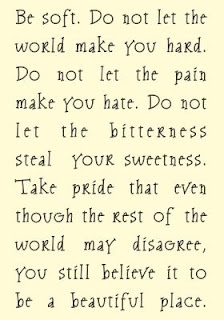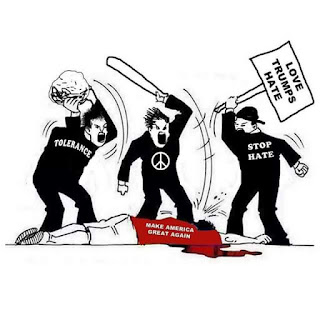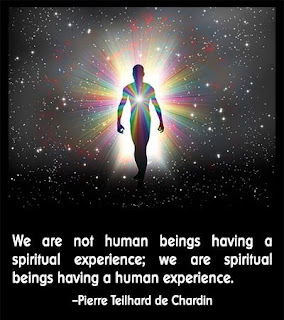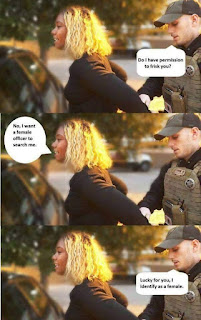"City officials aren’t sure where $33.3 million went, but Rhynhart’s predecessor noticed problems with the account as far back as 2014.— Global Awareness 101 (@Mononoke__Hime) May 4, 2018
An outside firm has been hired to the tune of $500,000 to try to figure out where the money has gone." 😦https://t.co/8prepaKSiJ
The Blaze
written by Jana J. Pruet
Monday April 30, 2018
More than $33 million has gone missing from the city of Philadelphia’s largest cash account.
“This is unacceptable, absolutely unacceptable,” City Controller Rebecca Rhynhart told KYW-TV.
City officials aren’t sure where $33.3 million went, but Rhynhart’s predecessor noticed problems with the account as far back as 2014.
An outside firm has been hired to the tune of $500,000 to try to figure out where the money has gone.
Rhynhart, who took office in January, said there are several possible explanations.
There’s a chance that the employees who were keeping up with the account may have left and no one picked up where they left off was among the possibilities.
“It could be that the money was mistakenly deposited in the wrong city account,” Rhynhart said. “It could be worse. It could be that a portion of it is actually missing or there could be theft.”
Rhynhart has demanded that the city’s Finance and Treasury Department take responsibility to find the cash.
“My job is to find and identify the financial problems of the city,” she said. “This is something that I am not going to let up on.”
What does the mayor say?
Mayor Jim Kenney denied that the money is missing.
“We need to reconcile our books. Reconcile is not missing,” Kenney told the news outlet. “The assertion that the money is missing is not true and we’ll get to the bottom of it and correct it.”
He’s certain it will turn up.
“They’re reconciling it,” Kenney said.
What do other city leaders say?
Councilman Allan Domb is troubled by the lack of urgency to find the lost funds and resolve the city’s bookkeeping problems.
“The average person in business would be picking up the phone, calling their accountant saying, ‘I need you to come down here right now and fix this problem immediately,'” Domb said. “The sense of urgency has to be there.”
Additionally, Domb said the city needs to set up new protocols and daily account monitoring.
The news outlet reached out to the city’s finance director, Rob Dubow, who would not comment and directed questions to the mayor’s office.
Dubow was appointed as director of finance and CFO in 2008.
Man Stabs Co-Worker To Death At Philadelphia International Airport After Fight Over Light, Police Say 😦https://t.co/cSeZqsJhDZ— Global Awareness 101 (@Mononoke__Hime) May 4, 2018
One-party town: How Philly went Democratic, and why that hurts us here and in Harrisburg.— Global Awareness 101 (@Mononoke__Hime) May 4, 2018
Philadelphia shifted from a Republican City in the 1950s and Democrats haven't let go since.https://t.co/oqbalq475u
BillyPenn.com
One-party town: How Philly went Democratic, and why that hurts us here and in Harrisburg
written by Anna Orso
written by Anna Orso
January 20, 2016
Conservatives in Philly often hear the same concern from voters: “I agree with everything you say, but I just can’t vote for a Republican.”
When Joe DeFelice tells people he’s the head of the Republican party in Philadelphia, they often give him some type of quizzical look.
“Yeah, I know,” he says, “that’s like being the valedictorian of summer school.”
Today, registered Democrats in Philadelphia outnumber Republicans on a scale of more than seven to one. It’s been that way for 70 years. With just 111,000 people registered in their party, a Republican has little chance of winning higher office in Philadelphia — a city of more than 1.5 million — anytime soon.
This influences how members of the community treat each other, even as young as grade school, and continues through a cycle of general elections involving incumbents who easily win year after year. It can ease the way for corruption.
“A lot of the checks and balances that we have as part of the elections process,” David Thornburgh, head of good governance nonprofit Committee of Seventy, said, “only work if you have a competitive two-party system.”
Racist, or conservative?
Michael Moroz, a 17-year-old senior at Central High School, fielded death threats from his classmates earlier this month after he penned a counterpoint column criticizing racially-charged protests at the University of Missouri. In the column that ran in his school’s newspaper, he called Michael Brown, the black teenager killed by a white officer in Ferguson, Mo., “a delinquent.”
He called it an expression of his conservative views. Some members of the diverse student population at Central called it racist.
Hands Up, Don't Shoot LIE: Obama Department of Justice’s March 4, 2015, investigative report on the shooting of Michael Brown found FEDERAL investigators COULD NOT confirm witness accounts that Brown signaled surrender before being killed execution-style.https://t.co/UcakMPpeeB— Global Awareness 101 (@Mononoke__Hime) May 4, 2018
Moroz told media outlets that even after his classmates demeaned him and threatened him on social media, the school failed to take action. Among some of the postings on Twitter: “Someone shoot morose [sic]” and “I’m sure the black students at Central will handle their business with this kid.”
Now, Moroz and his family have retained an attorney and are looking at legal action. DeFelice said he reached out to Moroz to tell the student to continue to stick to his convictions. But he says he was still disturbed by the response that came from Philadelphians as young as high school.
“I can’t keep getting appalled and appalled and appalled because I’m getting more and more used to it,” he said. “Because it’s the norm here.”
In 2012, then-16-year-old Samantha Pawlucy, a public school student, was chided for wearing a Mitt Romney campaign T-shirt to school; her teacher compared the gesture wearing a KKK shirt, and asked Pawlucy to take it off. Her family sued the district and settled for an undisclosed amount.
Her Center City attorney, Wally Zimalong, said incidents like these represent a larger problem: Philadelphia can be intolerant toward conservative views. And it can start as young as high school.
“It’s hypocrisy in its highest form,” he said about the case at Central High. “If this person were a student that was publishing an opinion piece that promoted a progressive perspective and conservatives subjected him to death threats… it would be a national story.”
How did Philadelphia get here?
Philadelphia’s purse-string-holding City Council is made up of 17 members, 14 of whom are Democrats. One Republican, Brian O’Neill, has held his 10th district spot based in Northeast Philadelphia for 36 years. The other two Republicans were elected as at-large members and have a spot only because the City Charter requires two at-large seats on Council to be held by the minority party.
There’s also Al Schmidt, a Republican City Commissioner who basically runs the office because the chair is Anthony Clark, who regularly fails to show up to work. He’s skipped out on voting a number of times, even though it’s his office’s job to run elections in Philly. Now, he’s slated to collect a half a million dollar DROP payment upon retirement.
And Clark is routinely endorsed by Democratic party leaders in Philadelphia.
On the GOP side, there are also two state representatives: John Taylor, of the Northeast and the Riverwards, and Martina White, who recently took over a seat in Northeast Philly that had been held by a Democrat.
And that’s it for the Republicans in Philadelphia. The city hasn’t elected a Republican mayor since Bernard Samuel left office in 1952. Philly Democrats own a huge majority on Council, 22 of 24 state House seats and every state Senate seat.
It wasn’t always this way. Before it switched to majority Democrat by 1960, Philadelphia was largely led by Republican party bosses who were described in a way similar to how some people describe the Democratic party today. A 1947 Time Magazine story claimed “Republican mayors are a Philadelphia tradition, like scrapple and pepper pot.”
“The tradition, unbroken since 1884, has been hard on Philadelphia,” the writer continued. “Corruption and civic stagnation have become chronic; as often as not, the city’s mayors have been bumbling party hacks. But Philadelphia voters have been too apathetic to throw the rascals out.”
Throughout the middle of the century, corruption permeated nearly every office in City Hall. Voters got sick of it and put four Democrats in row offices by 1949, and then by 1960, Democrats had quickly taken over city politics and voter registration switched in their favor.
The voter registration trends look like this:
The registration switch closely correlates with several other changes the city underwent. The rise in registered Democrats came as the city’s minority population decidedly increased. It also reflects organized labor, and its growing political power as members of those unions mobilized to vote for Democrats who promised to protect their jobs.
For many rank-and-file union members, even if their values align with Republicans, they register Democrat to vote in the primaries for the candidate who promises to support their union.
“A lot are conflicted because their dues are going to support certain politicians and exclusively the Democratic party,” Zimalong said. “But I can guarantee when they get in their trucks at the end of the day, they’re turning on Rush Limbaugh.”
The national brand
As if fighting a seven-to-one voter registration gap wasn’t enough of a challenge for Republicans to get their message out in Philadelphia, the party is now the local face of Donald Trump and Ted Cruz. DeFelice is explaining to voters in Philadelphia that the vast majority of Republicans, especially in urban areas, aren’t interested in banning all Muslims from America or pushing rhetoric that leaves out those who aren’t rich, white men.
“We have suffered from a host of individuals — not generally urban Republicans — who have foot-in-mouth disease,” Farah Jimenez said, “who made inappropriate commentary that comes off as sounding insensitive at best and racist at worst.”
Jimenez, a lifelong Republican who holds a seat on the School Reform Commission, said she’s found that Philadelphians in some ways equate changing their political affiliation with changing their religion. She recalled hosting an Urban League event during the 2000 presidential election cycle and she served as a surrogate for George W. Bush while another person spoke on behalf of Al Gore. Afterwards, a woman approached Jimenez and said “I agree with everything you say, but I just can’t vote for a Republican.”
“That’s when you start to realize the brand is so bad and the reinforcement of the negative brand is so strong as to have a firm hold on the electorate,” she said, “that it becomes almost like changing your religion.”
DeFelice said it’s this perception that makes it difficult to get the word out about work the Republican party is doing in Philly that often has nothing to do with divisive social issues and is largely focused on economics and fiscal conservatism.
“There’s some things that people in the Republican party in the city are never going to agree on,” he said. “We’re a different Republican party. We’re not what you would see in say Iowa or central Pennsylvania because we are diverse and we live around different things.”
Ryan Sanders, a Regional Field Director and African American Engagement Coordinator for the Republican National Committee, said the party is pushing harder in Philadelphia than it has in the last 40 years, citing representatives on the ground working in neighborhoods this year. In addition, he said, the GOP will be pushing a 2016 slate of candidates in the southeastern part of the state that’s diverse and reflects the make-up of the area that it represents.
Sanders, a lifelong Philadelphian who grew up in Logan, pointed to the success the party saw in Northeast Philadelphia last year when White won a seat in the 170th district that had previously been held by a Democrat. How’d she do it? Good ol’ fashioned knocking on doors — something Democrats not used to competition from the other side often can bypass.
“People have seen what that has done for their community, good or bad,” White said. “When Democrats came out to vote for me, they didn’t vote for me because I was a Republican. They felt I could actually make a difference for them and their families and have a positive impact on their lives.”
The consequences
In the last 15 years, at least 40 Philadelphia politicians have been investigated, charged or convicted of some form of corruption, whether it was former state Sen. Vince Fumo, convicted on 137 counts of corruption in 2009, or nine traffic court judges charged for taking part in a ticket-fixing scheme.
The majority of the people in that hall of shame are Democrats. Sure, that makes sense because most Philadelphia politicians at the time were Democrats. But it also begs the question: Does only having one party make it easier for political figures in the city to do shady stuff?
“You end up with a vast majority of people who are engaged in the process who are looking over their shoulder at their party in power,” Thornburgh said, “and think twice about challenging the sort of orthodoxy or the decisions that are made.”
Sanders said in one-party cities across the country, a lack of competition in general elections can lead to laziness from long-time politicians who may not feel to pressure to engage with constituents.
And look at how Harrisburg views Philly, and vice versa. The capital that’s usually at least partially run by Republicans is now in a GOP majority that hasn’t been seen since Dwight D. Eisenhower was president.
But in Philadelphia, most of the state delegation is Democrats, leaving the city with few allies entrenched in Harrisburg who can really make a difference on a policy level simply because they’re not in the majority party.
White, for example, has introduced five bills in her last year in office and sponsored 84 bills and resolutions in total. Three made it out of the House. And that’s impressive for a freshman representative who’s been able to push substantive legislation as opposed to other members of the Philadelphia delegation who struggle to pass their big policy ideas because they don’t control the levers of power.
“You can get a lot of things done being a Republican in the majority,” White said. “For as long as Philadelphia has a strong voice in Harrisburg whenever there’s a majority, that’s the key. Because more things get done when your voice is stronger.”
What can be done
Republicans know they can’t turn Philadelphia into a two-party city with serious political competition in a short period of time. A massive paradigm shift in favor of Republicans, especially as the national brand moves farther to the right, simply isn’t likely.
Thornburgh, of Committee of Seventy, said the city should look hard at allowing an open primary that makes it easier for Independents to challenge Democrats. He said allowing for Independent competition rather than straight Republican may be a more “realistic” path forward.
Jimenez said she hopes the city reviews its campaign finance laws enacted that have lowered the amount that individuals can donate to campaigns. She said the caps benefit Democrats who have a larger pool of donors in the city to choose from as opposed to Republicans who, based on voter registration, have a smaller list of donors they can turn to.
She also said individuals should consider backing independent expenditure groups like Philadelphia 3.0 and the 5th Square, two PACs that emerged last year, that have endorsed both Democrat and Republican candidates who care about good governance.
But maybe getting this Democrat-controlled city to a place where more political competition exists will take the city getting fed up with current control like it did back in the 1950s when the city booted the Republicans.
“It took us 70 years to get in the spot we’re in, we’re not going to build it back up overnight,” DeFelice said. “But over time, I believe that we can. Philosophically, I think people are really going to have to start getting frustrated.”
Kermit Barron Gosnell (born February 9, 1941) is an American former abortion-provider who was convicted of murdering three infants who were born alive during attempted abortion procedures.
Gosnell owned and operated the Women's Medical Society clinic in Philadelphia, Pennsylvania and he was a prolific prescriber of OxyContin.[8] In 2011, Gosnell and various co-defendant employees were charged with eight counts of murder, 24 felony counts of performing illegal abortions beyond the state of Pennsylvania’s 24-week time limit, and 227 misdemeanor counts of violating the 24-hour informed consent law. The murder charges related to an adult patient, Karnamaya Mongar, who died following an abortion procedure, and seven newborns said to have been killed by having their spinal cords severed with scissors after being born alive during attempted abortions. In May 2013, Gosnell was convicted of first degree murder in the deaths of three of the infants and involuntary manslaughter in the death of Karnamaya Mongar. Gosnell was also convicted of 21 felony counts of illegal late-term abortion, and 211 counts of violating the 24-hour informed consent law. After his conviction, Gosnell waived his right to appeal in exchange for an agreement not to seek the death penalty. He was sentenced instead to life in prison without the possibility of parole.
In total during the course of his career, 46 known lawsuits had been filed against Gosnell over some 32 years. Observers claimed that there was a complete failure by Pennsylvania regulators who had overlooked other repeated concerns brought to their attention, including lack of trained staff, "barbaric" conditions, and a high level of illegal late-term abortions.
2010 raid
The Women’s Medical Society was raided on 18 February 2010 under a search warrant by investigators from the FBI and state police. The raid was the result of a months-long investigation by the Drug Enforcement Administration (DEA), the Philadelphia Police Department, and the State's Dangerous Drug-Offender Unit into suspected illegal drug prescription use at the practice. The investigation had also revealed the suspicious death of patient Karnamaya Mongar in 2009, which had in turn brought to light further information about unsanitary operations, use of untrained staff, and use of powerful drugs without proper medical supervision and control. Thus, when the February 2010 raid took place, staff from the Pennsylvania Department of State and Pennsylvania Department of Health also attended, as these issues were under their remit:
When the team members entered the clinic, they were appalled, describing it to the Grand Jury as 'filthy,' 'deplorable,' 'disgusting,' 'very unsanitary, very outdated, horrendous,' and 'by far, the worst' that these experienced investigators had ever encountered. There was blood on the floor. A stench of urine filled the air. A flea-infested cat was wandering through the facility, and there were cat feces on the stairs. Semi-conscious women scheduled for abortions were moaning in the waiting room or the recovery room, where they sat on dirty recliners covered with blood-stained blankets. All the women had been sedated by unlicensed staff – long before Gosnell arrived at the clinic – and staff members could not accurately state what medications or dosages they had administered to the waiting patients. Many of the medications in inventory were past their expiration dates… surgical procedure rooms were filthy and unsanitary… resembling 'a bad gas station restroom.' Instruments were not sterile. Equipment was rusty and outdated. Oxygen equipment was covered with dust, and had not been inspected. The same corroded suction tubing used for abortions was the only tubing available for oral airways if assistance for breathing was needed…"
[F]etal remains [were] haphazardly stored throughout the clinic– in bags, milk jugs, orange juice cartons, and even in cat-food containers... Gosnell admitted to Detective Wood that at least 10 to 20 percent... were probably older than 24 weeks [the legal limit]... In some instances, surgical incisions had been made at the base of the fetal skulls. The investigators found a row of jars containing just the severed feet of fetuses. In the basement, they discovered medical waste piled high. The intact 19-week fetus delivered by Mrs. Mongar three months earlier was in a freezer. In all, the remains of 45 fetuses were recovered ... at least two of them, and probably three, had been viable."
Gosnell's license to practice was suspended on 22 February 2010, and these and other findings were presented to a Grand Jury on 4 May 2010. Public discussion focused on claims of unsanitary conditions and other unacceptable conditions at the practices. Media reports stated that furniture and blankets were stained with blood, freely roaming cats deposited their feces wherever they pleased, and that non-sterilized equipment was used and reused on patients. According to the grand jury report, patients were given labor-inducing drugs by staff who had no medical training. Once labor began, the patient would be placed on a toilet. After the fetus fell into the toilet, it would be fished out, so as not to clog the plumbing. In the recovery room, patients were seated on dirty recliners covered in blood-stained blankets. Prosecutors alleged that Gosnell had not been certified in either gynecology or obstetrics. The Grand Jury estimated that Gosnell's practice "took in $10,000 to $15,000 a night" additional to income from his exceedingly high level of prescriptions.







































No comments:
Post a Comment